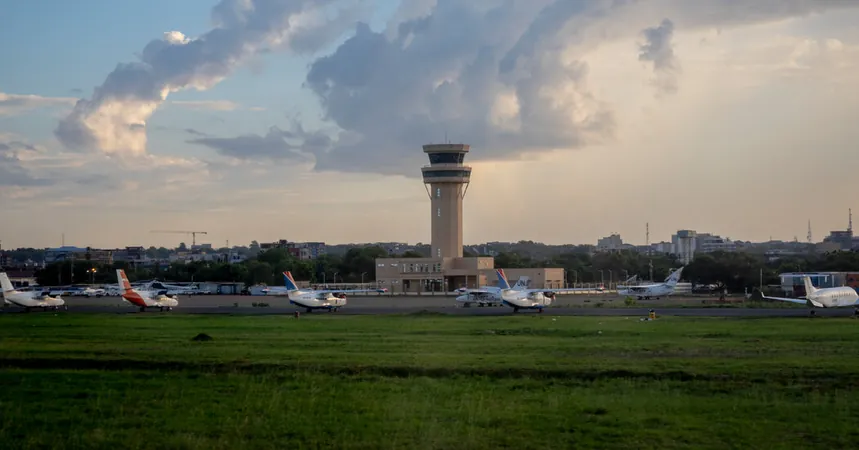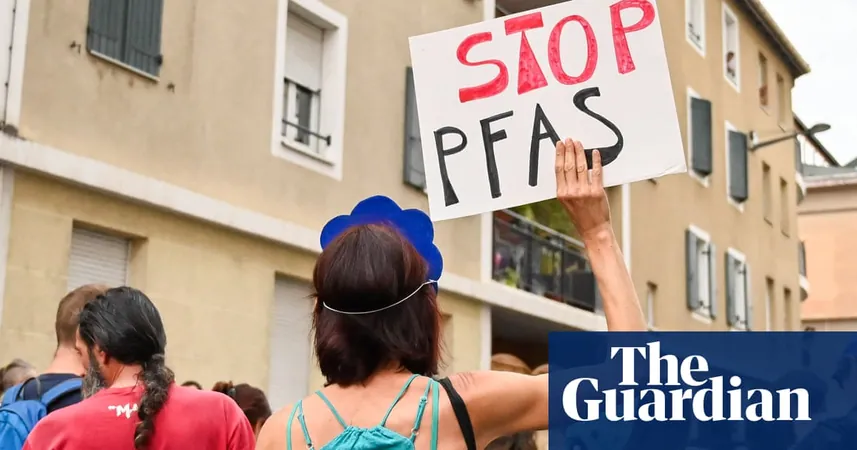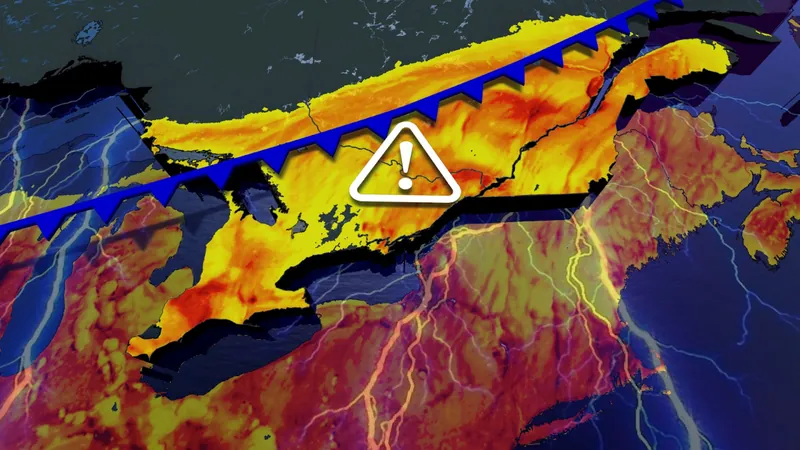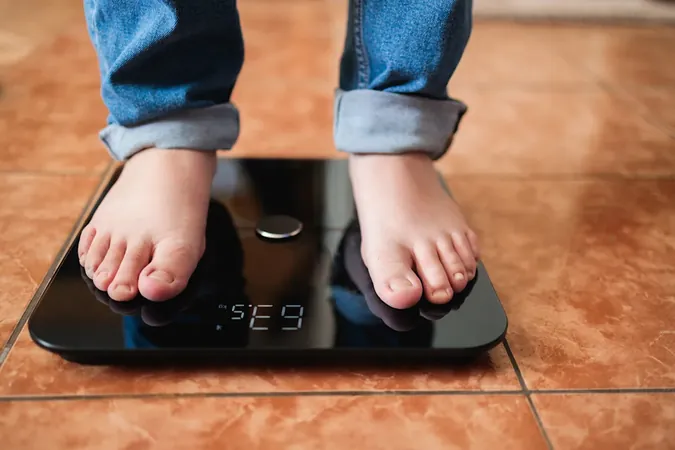
Trump's Controversial Deportation Plan: Sending Migrants to South Sudan
2025-05-26
Author: Noah
A Dangerous Journey Ahead
The Trump administration is setting its sights on deporting a group of eight migrants to South Sudan, a nation teetering on the edge of civil war. These men, hailing from countries such as Vietnam, Cuba, and Mexico, currently find themselves in custody at a U.S. military base in Djibouti, following a federal judge's ruling aimed at preventing their handover to South Sudan's government.
Unprecedented Deportation Tactics
In a move unprecedented in previous administrations, the Trump administration is considering large-scale deportations to perilous locations like South Sudan, Libya, and even high-security prisons in El Salvador. This approach, which circumvents due process, appears designed to instill fear among potential immigrants, discouraging them from reaching U.S. shores.
"The trifecta of being sent to a third country, the intended scale of deportations, and a punitive mindset represent a new strategy," states Sarah R. Sherman-Stokes, a legal scholar at Boston University School of Law.
The Aim Behind the Strategy
Experts suggest that the deportation of individuals to war-torn nations is part of a targeted effort to dissuade others from attempting to enter the U.S. Muneer Ahmad of Yale Law School describes this approach as a 'concerted strategy' to prompt self-deportation among immigrants.
Who Are These Deportees?
An examination of court records by the New York Times reveals that the eight men currently in Djibouti have been convicted of violent crimes. The administration has portrayed them as 'barbaric monsters,' releasing a detailed 70-page document of their criminal histories, a tactic many believe is meant to sway public opinion against judicial decisions that hinder aggressive deportation efforts.
Notably, these men differ starkly from over 100 Venezuelans recently deported to El Salvador, most of whom had clean records.
The Case of Thongxay Nilakout
One of the individuals caught in this deportation web is Thongxay Nilakout, a Laotian man convicted of murdering a German tourist at just 17 years old. Birte Pfleger, the victim’s daughter, expressed her turmoil at the administration's actions, highlighting the contradiction of punishing individuals without due process, a violation that could affect everyone.
Why South Sudan?
On May 22, President Trump confirmed the deportees were destined for South Sudan, a region rife with displacement due to ongoing conflicts. The movement towards South Sudan began when the country initially refused to accept one deportee, prompting swift retaliatory measures from the U.S. government.
Other Nations Involved
**El Salvador:** The administration previously deported nearly 140 men from Venezuela to a maximum-security prison in El Salvador using an obscure law, with many families contesting the legality of their detention.
**Rwanda:** In discussions with Rwanda, the U.S. seeks to send migrants there, despite the country's controversial history regarding human rights abuses and poor treatment of asylum seekers.
**Libya:** Plans to transport migrants to Libya were halted after legal challenges, with conditions in Libyan detention centers being labeled as 'horrific' by human rights groups.
**Mexico:** Recent court rulings in Boston have spotlighted the legal issues surrounding deportations, emphasizing the need for due process amid mounting disputes.
Legal Battles Ahead
The Trump administration faces increasing legal challenges as deportation tactics come under scrutiny. Recent orders have mandated that deportees be notified of potential removals to third countries with time to appeal based on fears of persecution. Yet, the administration proceeded with deportations of the eight men, exposing a significant clash between legal rights and political policy.
This unfolding situation highlights the complexities and ethical dilemmas surrounding immigration policies in an increasingly volatile global landscape.









 Brasil (PT)
Brasil (PT)
 Canada (EN)
Canada (EN)
 Chile (ES)
Chile (ES)
 Česko (CS)
Česko (CS)
 대한민국 (KO)
대한민국 (KO)
 España (ES)
España (ES)
 France (FR)
France (FR)
 Hong Kong (EN)
Hong Kong (EN)
 Italia (IT)
Italia (IT)
 日本 (JA)
日本 (JA)
 Magyarország (HU)
Magyarország (HU)
 Norge (NO)
Norge (NO)
 Polska (PL)
Polska (PL)
 Schweiz (DE)
Schweiz (DE)
 Singapore (EN)
Singapore (EN)
 Sverige (SV)
Sverige (SV)
 Suomi (FI)
Suomi (FI)
 Türkiye (TR)
Türkiye (TR)
 الإمارات العربية المتحدة (AR)
الإمارات العربية المتحدة (AR)